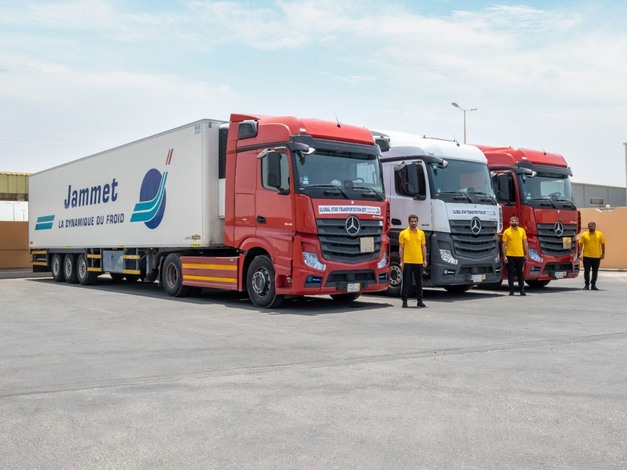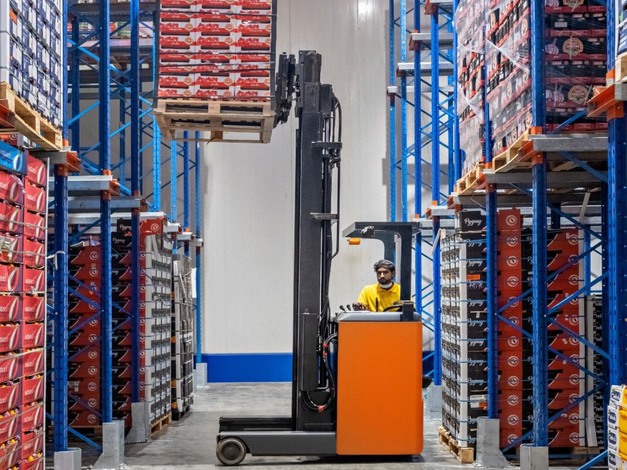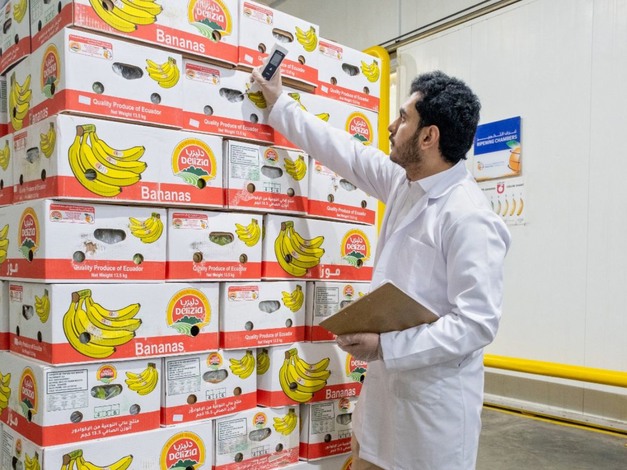 The global increase in heat and successive breaking of temperature records are challenging production and handling methods for perishable goods. Modernization of greenhouses and logistics, including cold storage systems, will undoubtedly become an imperative in many parts of the world. To understand what's involved in producing and handling fresh produce at extreme temperatures, we spoke to Umer Tabraiz, Head of Operations at Global Star, a producer and importer of fresh produce in Saudi Arabia.
The global increase in heat and successive breaking of temperature records are challenging production and handling methods for perishable goods. Modernization of greenhouses and logistics, including cold storage systems, will undoubtedly become an imperative in many parts of the world. To understand what's involved in producing and handling fresh produce at extreme temperatures, we spoke to Umer Tabraiz, Head of Operations at Global Star, a producer and importer of fresh produce in Saudi Arabia.
Fresh produce professionals in Saudi Arabia, where harsh climatic conditions have always been a reality, have long-standing experience and extensive expertise in the use of cooling systems in agriculture and the food industry. This is all the more important as Global Star Group has established a company entirely dedicated to fruit handling.
Tabraiz explains: "Handling fresh fruit is a critical process in Saudi Arabia due to its hot, arid climate. High temperatures and low humidity can accelerate the deterioration process of fresh fruit and reduce its shelf life if not handled properly. That's why the Global Star Group has created a fully-fledged company specializing in cold storage and transport services. We pride ourselves on providing reliable and efficient solutions to meet the unique needs of our customers, including our sister company, particularly in the fresh produce industry".

Global Star's scope of intervention extends from the early stages of the harvest to the sale of produce to the end consumer. Tabraiz explains: "In climatic conditions such as those in Saudi Arabia, it is important to maintain precise temperature and humidity levels. That's why our team of skilled professionals meticulously monitors and adjusts these factors all along. Our mission begins with picking, sorting, and order preparation. At this stage, we implement a series of post-harvest practices that help extend product shelf life."
Tabraiz continues, "Next, we repack the products in appropriate packaging materials, designed to withstand harsh temperatures. Efficient packaging and storage conditions also play an important role in maintaining the quality and shelf life of fresh fruit in the Saudi Arabian climate. Adequate ventilation, temperature control, and humidity levels are essential to prevent moisture loss, reduce ethylene build-up, and control pathogen growth."

"During transport, to ensure optimum quality, we have a fleet of over 100 temperature-controlled trucks. Our vehicles are equipped with state-of-the-art temperature and humidification sensors, guaranteeing optimal conditions for the storage and distribution of sensitive and delicate items such as fresh produce."
"Our intervention extends to our client's premises, as we take care of the retail display. Fruit is displayed for sale in various outlets such as supermarkets, grocery stores, or local markets. The right presentation and arrangement of fruit is essential to attract customers and ensure easy access. Maintaining the right storage conditions just before the sale to the final consumer is equally essential. We provide fruit handling services at all these stages, with a storage capacity of over 18,000 pallets in Saudi Arabia."
Adapting to the new climatic realities, therefore, requires not only a skilled workforce but also investment in the necessary machinery and cooling systems. Tabraiz says, "All our workforce is on our payrolls, we don't outsource any part of the fresh produce handling process. As for equipment investment, we are talking about the most common and widely used methods for cooling fresh produce. This involves the use of refrigeration equipment such as compressors, condensers, evaporators, and control systems to maintain the desired temperature. Cold stores, also known as cold rooms or refrigerated warehouses, are used for prolonged storage of fresh produce at low temperatures. These facilities are equipped with insulation, refrigeration units, temperature, and humidity control systems, and appropriate ventilation systems. All our facilities are equipped with American technology".

These logistical imperatives in regions like Saudi Arabia, where 70% of electricity is used for air conditioning and cooling (according to a 2017 study by King Abdulaziz University), could become necessary elsewhere in the world sooner than we might expect. Tabraiz says: "Even Saudi Arabia is experiencing the impact of climate disruption, characterized by rising temperatures and sudden thermal variations. These changes are having a major impact on fresh produce handling in the country. Logisticians and fresh produce operators in other parts of the world who have recently faced this problem should consider these key points:
- Temperature-controlled infrastructure: As heat rises, it becomes essential to invest in and improve temperature-controlled storage and distribution systems. These include refrigerated warehouses, refrigerated trucks, and warehouses equipped with climate control technology to maintain optimum temperature conditions for fresh produce;
- Improved cooling and preservation techniques: Extreme heat calls for the adoption of advanced cooling and preservation techniques, such as hydraulic cooling and modified atmosphere packaging. These methods extend the shelf life of fresh produce and prevent deterioration during transport and storage;
- Sustainable irrigation systems: As water resources become scarcer due to climate change, it becomes crucial to invest in efficient irrigation systems such as drip irrigation and smart water management technologies. These systems conserve water and ensure optimum crop growth while reducing water wastage;
- Move towards more heat-tolerant crops: To adapt to a warmer climate, it may be necessary to promote and grow heat-tolerant crop varieties. Research and development efforts should focus on identifying and selecting crops capable of withstanding higher temperatures and sudden thermal variations, thus guaranteeing higher yields and better quality;
- Increased shade and greenhouse structures: Shade structures and greenhouses can help protect crops from direct sunlight and extreme heat. These structures provide a controlled environment that regulates temperature, humidity, and exposure to sunlight, creating optimal conditions for plant growth."

These measures require substantial investment, and will considerably increase the production costs of fresh produce. But this is inevitable, according to the logistics expert. "Regarding the impact on production costs, it is likely that these necessary changes in the handling of fresh produce will increase production costs. Investments in advanced cooling technologies, infrastructure upgrades, sustainable irrigation systems, and research into heat-tolerant crops require financial resources. In addition, operational costs related to the maintenance of temperature-controlled installations and greenhouse structures can contribute to the increase in overall expenditure. However, the specific magnitude of the cost increase depends on various factors such as the scale of the operation, the level of automation, and the availability of resources."
Tabraiz concludes, "It is important to note that while these changes may initially result in increased production costs, they are essential to ensure the sustainability and future viability of fresh produce handling in Saudi Arabia, given the emerging climate challenges."
For more information:
Umer Tabraiz
Global Star
Tel: +966 541 366 444
Email: [email protected]
www.globalstar-group.com
linkedin.com/in/umer-tabraiz-951495174
